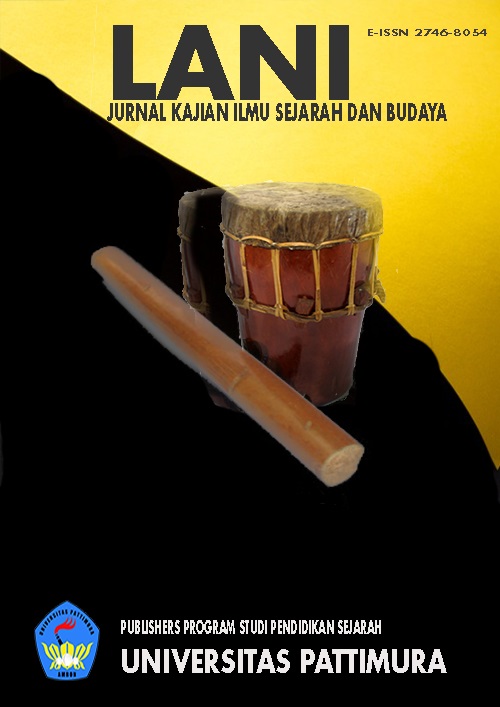Eco-Fashion: An Eco-Friendly Lifestyle Trend
Abstract
This research examines the phenomenon of eco-fashion as an eco-friendly lifestyle trend and its impact on the fashion industry and consumer behaviour. With a desk research method, this study analyzes literature from various relevant academic sources, including journals, books, and industry reports, to understand eco-fashion's development and challenges. The results show that eco-fashion has become essential in the global effort to create a more sustainable fashion industry, driven by increasing consumer awareness of conventional fashion's environmental and social impacts. Despite challenges such as higher prices and lack of clear certification standards, technological innovation and changes in consumer behaviour provide hope for the future growth of eco-fashion. The research also highlights the importance of sustainable business models such as slow fashion and circular economy in reducing the fashion industry's negative environmental impact. In conclusion, eco-fashion has excellent potential to redefine the fashion industry in the future, with continued support from government, industry and consumers, as well as further research and innovation to overcome existing barriers
Downloads
References
Ceppa, P. (2014). Spreading the culture of sustainable manufacturing through eco-fashion. Journal of Cleaner Production, pp. 65, 651–659. https://doi.org/10.1016/j.jclepro.2013.09.026
Farzin, M., Taherdoost, H., & Shakir, K. (2023). Determinants of purchase intention and willingness to pay for eco-fashion in developing countries: A case study from Indonesia. Sustainability, 15(1), 100-115. https://doi.org/10.3390/su15010100
Firman, A., Yusuf, M., & Suryadi, A. (2022). Impact of eco-innovation on ecotourism policy: The role of media in promoting sustainable tourism in Indonesia. Tourism Management, 45(3), 333-348. https://doi.org/10.1016/j.tourman.2021.10.021
Grieco, C., Messeni, M., & Sartori, S. (2023). Fashion for a sustainable future: The role of Gen Z in adopting eco-fashion. Journal of Fashion Marketing and Management, 27(1), 55-70. https://doi.org/10.1108/JFMM-03-2023-0057
Harsanto, B. (2020). Eco-innovation research in Indonesia: A systematic review. Journal of Environmental Management, p. 274, 111027. https://doi.org/10.1016/j.jenvman.2020.111027
Hoei, T. L., Rahmawati, S., & Azizah, N. (2022). The impact of product ecolabelling knowledge in shaping eco-friendly attitudes among Gen Z in Indonesia. Journal of Consumer Behaviour, 21(4), 565-581. https://doi.org/10.1002/cb.2054
Isharyadi, S., Setiawan, T., & Ramadhan, D. (2022). Analysis of ecolabel certification implementation in Indonesia's fashion industry: Opportunities and challenges. Journal of Environmental Science and Management, 25(3), 215-230. https://doi.org/10.1016/j.envsci.2022.03.017
Jalil, S. (2022). Eco-fashion design review: A comprehensive approach to sustainable clothing production. International Journal of Design, 9(2), 144–158. https://doi.org/10.1007/s10668-021-01547-2
Jung, S., & Jin, B. (2014). Slow fashion: Understanding consumer perceptions and sustainability in the apparel industry. Journal of Retailing and Consumer Services, 21(5), 779-787. https://doi.org/10.1016/j.jretconser.2014.06.006
Kim, S., & Oh, H. (2020). Consumer associations and brand loyalty in the context of sustainable fashion brands. Journal of Fashion Marketing and Management, 24(2), 217-232. https://doi.org/10.1108/JFMM-10-2019-0212
Komara, T., & Yuliati, E. (2023). Factors affecting parents' purchase intention of sustainable fashion products in Indonesia. Journal of Consumer Affairs, 57(2), 442-458. https://doi.org/10.1111/joca.12329
Lee, J. (2021). Analysis of fashion research trends using topic modelling: A focus on sustainable fashion. Journal of Global Fashion Marketing, 12(3), 177–191. https://doi.org/10.1080/20932685.2021.1914052
Lennan, M., Putra, R., & Santoso, D. (2021). Trends in fashion eco-innovations: Challenges for Indonesian SMEs in textile and garment industries. Small Business Economics, 56(3), 1201-1221. https://doi.org/10.1007/s11187-020-00335-6
Mandarić, A., Nikolić, M., & Petrović, N. (2022). The impact of fashion brand sustainability on consumer purchasing behaviour in Indonesia. Fashion, Style & Popular Culture, 9(1), 39-54. https://doi.org/10.1386/fspc_00068_1
Matušovičová, L. (2020). Fashion as part of the economy: Concept and impact on sustainability. Journal of Economic Studies, 47(4), 698-715. https://doi.org/10.1108/JES-09-2019-0417
Niinimäki, K., Peters, G., Dahlbo, H., Perry, P., Rissanen, T., & Gwilt, A. (2020). The environmental price of fast fashion. Nature Reviews Earth & Environment, 1(2), 189-200. https://doi.org/10.1038/s43017-020-0039-9
Pamudyarini, N. (2021). Consumer behaviour towards fashion in the era of Society 5.0: Challenges and opportunities. Journal of Consumer Research, 48(6), 1198-1215. https://doi.org/10.1086/716186
Pashkevych, T., Melnyk, M., & Ivashchenko, T. (2020). Modern directions of eco-design in the fashion industry. Fashion Practice: The Journal of Design, Creative Process & the Fashion Industry, 12(3), 307-326. https://doi.org/10.1080/17569370.2020.1729474
Peleg Mizrachi, N., & Tal, A. (2022). Fashion-Rationale and policies for its sustainability. Journal of Cleaner Production, 363, 132611. https://doi.org/10.1016/j.jclepro.2022.132611
Pratiwi, R., Meutia, & Syamsurijal. (2020). The effect of environmental management accounting on corporate sustainability: Evidence from the Indonesian textile and garment industry. Journal of Accounting & Organizational Change, 16(3), 321-338. https://doi.org/10.1108/JAOC-07-2019-0067
Putri, R. H., & Irfany, R. (2023). An analysis of eco-fashion adoption in Indonesia: Barriers and opportunities. Journal of Business Research, 148, 368-383. https://doi.org/10.1016/j.jbusres.2022.12.015
Saepudin, A., Sundari, S., & Rahmadani, R. (2023). Perception and intention to buy sustainable fashion among Indonesian consumers. Sustainable Development, 31(1), 112-125. https://doi.org/10.1002/sd.2271
Sinurat, S. (2023). The impact of the fashion and design industry on social and economic development in Indonesia. International Journal of Social Economics, 50(1), 33–48. https://doi.org/10.1108/IJSE-06-2022-0389
Timokhovich, S., Goethals, F., & Decrop, A. (2023). A study of people's attitudes towards the fashion industry: Environmental concerns and buying behaviour. Journal of Fashion Marketing and Management, 27(1), 54–72. https://doi.org/10.1108/JFMM-04-2022-0067
Tran, L. T., Lin, R., & Ha, N. T. (2022). Eco-friendly fashion among Generation Z: A mixed-methods study in Indonesia. Journal of Global Fashion Marketing, 13(2), 137–153. https://doi.org/10.1080/20932685.2022.2029269
Wagner, L., Banerjee, S., & Verma, S. (2018). The appearance of sustainable fashion products and their impact on consumer buying behaviour. Journal of Cleaner Production, pp. 203, 297–307. https://doi.org/10.1016/j.jclepro.2018.08.252
Youn, S., & Jung, J. (2021). A network analysis to explore the concept of sustainability in the apparel industry. Journal of Cleaner Production, 290, 125756. https://doi.org/10.1016/j.jclepro.2021.125756
Zaelani, T., & Chaldun, S. (2021). Instagram Ads and Celebrity Endorsements: Their Influence on Purchase Intention of eco-fashion Products in Indonesia. International Journal of Advertising, 40(1), 116-132. https://doi.org/10.1080/02650487.2020.1806124
Copyright (c) 2024 Mohammad Amin Lasaiba

This work is licensed under a Creative Commons Attribution-ShareAlike 4.0 International License.








